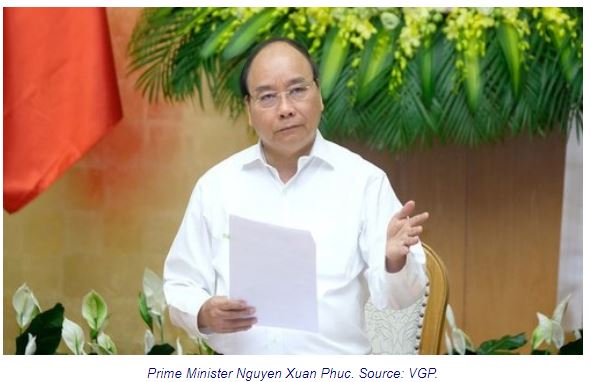Vietnam gov’t won’t change monetary policy course this year: PM
“We will not change our economic and financial policies in 2018, including environmental protection taxes on oil and petroleum products, value added tax reform, prices of goods and public services, such as electricity prices or costs of medicines and healthcare services,” he added.
The Vietnamese prime minister also confirmed that Vietnam will not devalue its currency, the dong, at this moment in the context of high volatility of the world’s major currencies until there is a palpable impact on global financial markets and Vietnam.
He stressed the necessity of keeping the USD/VND exchange rate fluctuating in a range of 2% compared to the rate at the end of 2017.
Stabilizing exchange and inflation rates is considered as key objectives of the government at the moment.
Nguyen Thi Hong, deputy governor of the State Bank of Vietnam (SBV), at a press meeting after the regular cabinet meeting informed that the SBV’s bench mark rate has increased 1.1% against the end of last year, which is within the allowed limit of 3%. Meanwhile, the USD/VND exchange rate quoted by commercial banks has also increased by 2.5% compared to December 31, 2017.
“The fluctuation remains under SBV’s control and is compatible with current trends of currencies in the world and of region,” Hong added.
On August 1, the USD selling price quoted by commercial banks stabilized around VND 22,325 – VND22,340, nearing the ceiling price, while the buying prices were VND80 – VND100 lower.


 English
English




